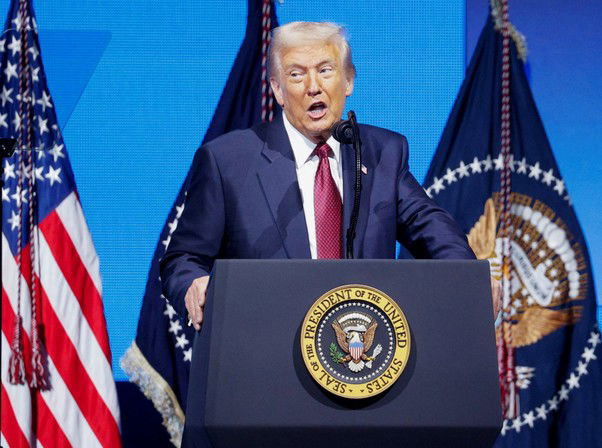America
Trump softens stance on H-1B visa reform, says US needs to "bring this talent" as it can't rely on long-term unemployed

Washington DC [US], November 12 (ANI): US President Donald Trump has appeared to have softened his stance on his administration's aggressive push on H-1B visa reforms, acknowledging the need to import specialised foreign talent to fill critical roles in the American workforce.
During an interview with Fox News host Laura Ingraham on Tuesday (local time), Trump defended the value of skilled immigrant workers, arguing that the US cannot simply repurpose long-term unemployed Americans for complex roles in manufacturing and defence without extensive training.
The US President further noted that while he supports raising wages for American workers, the US must still "bring this talent" to maintain its industrial and technological edge.
"I agree, but you also have to bring this talent," Trump said when asked whether H-1B visa reform would be a major priority for his administration.
Earlier in September, Trump signed a proclamation that triggered a major overhaul of the H-1B visa petition.
According to the proclamation, there will now be a USD 100,000 fee for new H-1B visa applications, a sharp increase from the previous level of about USD 1,500.
The US State Department later clarified that the new fee requirement applies only to individuals or companies filing new H-1B petitions or entering the H-1B lottery after September 21.
Current visa holders and petitions submitted before that date remain unaffected. Under the proclamation, a USD 100,000 payment must accompany every new H-1B visa petition filed after the deadline, including those submitted for entries in the 2026 lottery.
When countered during the interview that the US has "plenty of talented people," Trump countered, "No, you don't. There are certain skills you don't have, and people have to learn them. You can't take people off the unemployment line and say, 'I'm going to put you into a factory where we're going to make missiles.'"
The US President further cited an example from the state of Georgia, where, according to him, the removal of skilled foreign workers created difficulties in manufacturing complex products.
"They had people from South Korea that had made batteries all their life. Making batteries is very complicated and very dangerous -- a lot of explosions, a lot of problems. They had like 500 or 600 people in the early stages to make batteries and to teach people how to do it," he said.
Trump was referring to the raids conducted by the US Immigration and Customs Enforcement (ICE) officials at an under-construction Hyundai plant in the state of Georgia in September, during which hundreds of South Korean workers were arrested and deported.
He emphasised that such industries require specialised expertise that cannot be immediately filled by untrained or long-term unemployed workers.
"You can't just say a country is coming in, going to invest USD 10 billion to build a plant, and take people off the unemployment line who haven't worked in five years and they're going to start making missiles. It doesn't work that way," he added.
Trump's remarks mark a notable shift from his earlier hardline stance on foreign worker visas, particularly the H-1B programme, which has been one of the central topics in US debates over immigration and employment. (ANI)



































